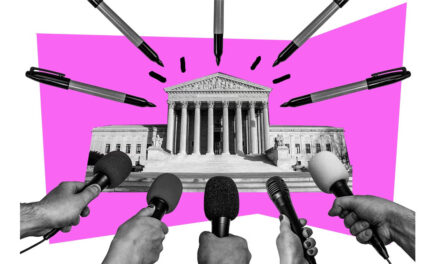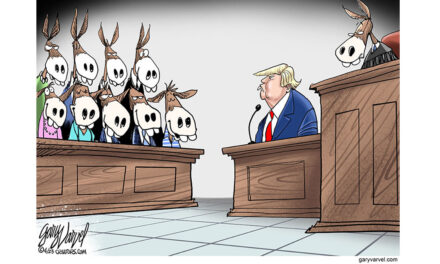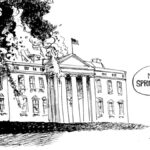
Liberal Courts Continue to Fight Trump’s Travel Ban
In early June, the Supreme Court allowed parts of President Trump’s controversial travel ban to take effect while the court prepares to hear full arguments in the fall.
The travel ban, which covers the entire US, blocks travelers from six predominantly Muslim countries: Iran, Libya, Yemen, Somalia, Syria, and Sudan.
As I wrote earlier this month, the ban makes exceptions for travelers with “bona fide relationships” in the US. This includes parents, spouses, children, sons-in-law, daughters-in-law, siblings, and fiancés.
On Thursday, US District Judge Derrick Watson of Hawaii issued an order to expand the list of “bona fide relationships” to include cousins, grandparents, grandchildren, aunts, uncles, nephews, nieces, sisters-in-law, and brothers-in-law.
“It’s just common sense that grandparents are close family members,” argues Watson. He also wants to loosen the rules to allow some refugees to enter the country as long as there is a formal agreement between the US and a refugee settlement agency.
The Trump Administration argues that widening the definition of “bona fide relationship” to include grandparents and other family members would bring thousands more people into the country. AG Jeff Sessions says the ruling “undermines national security” and “creates confusion.”
Becca Heller of the International Refugee Assistance Project says the expansion could help more than 24,000 refugees who have already been vetted and approved but would have been blocked by the 120-day freeze on refugee admissions. The freeze is part of Trump’s 12-month cap on refugee admissions, which reached its maximum of 50,000 this week.
“Many of them had already sold all of their belongings to start their new lives in safety,” says Heller. “This decision gives back hope to so many who would otherwise be stranded indefinitely.”
The Department of Justice is appealing directly to the Supreme Court, insisting that Watson’s ruling requires the high court’s “immediate intervention.”
SCOTUS has given Watson until noon on Tuesday to file a response.
Author’s Note: When Trump signed his initial travel ban in January, he sought to address a pressing matter with a ban lasting just a few months.
In fighting the ban, the courts have robbed Trump of the element of surprise. Any terrorists who would have been barred from entering the US by the initial ban have probably managed to get in by now.
Editor’s note: Trump isn’t done here, stay tuned for the next round as Trump takes this back to the Supreme Court.


























I would let Biden on the ballots in Ohio and Alabama. Keep him off the other 48 states for the…
Only by technicality does this thwart any chance of Trump being President. I do not care if he is guilty.…
We don’t care what that gutter slut thinks. Yes I called it right. It’s established that she has round heels…
Trump getting a fair trial in New York is not going to happen. The commiecrats have their thumbs on the…
Sir, I only respond in kind when you start the name calling. As is your way. As is your kind.…